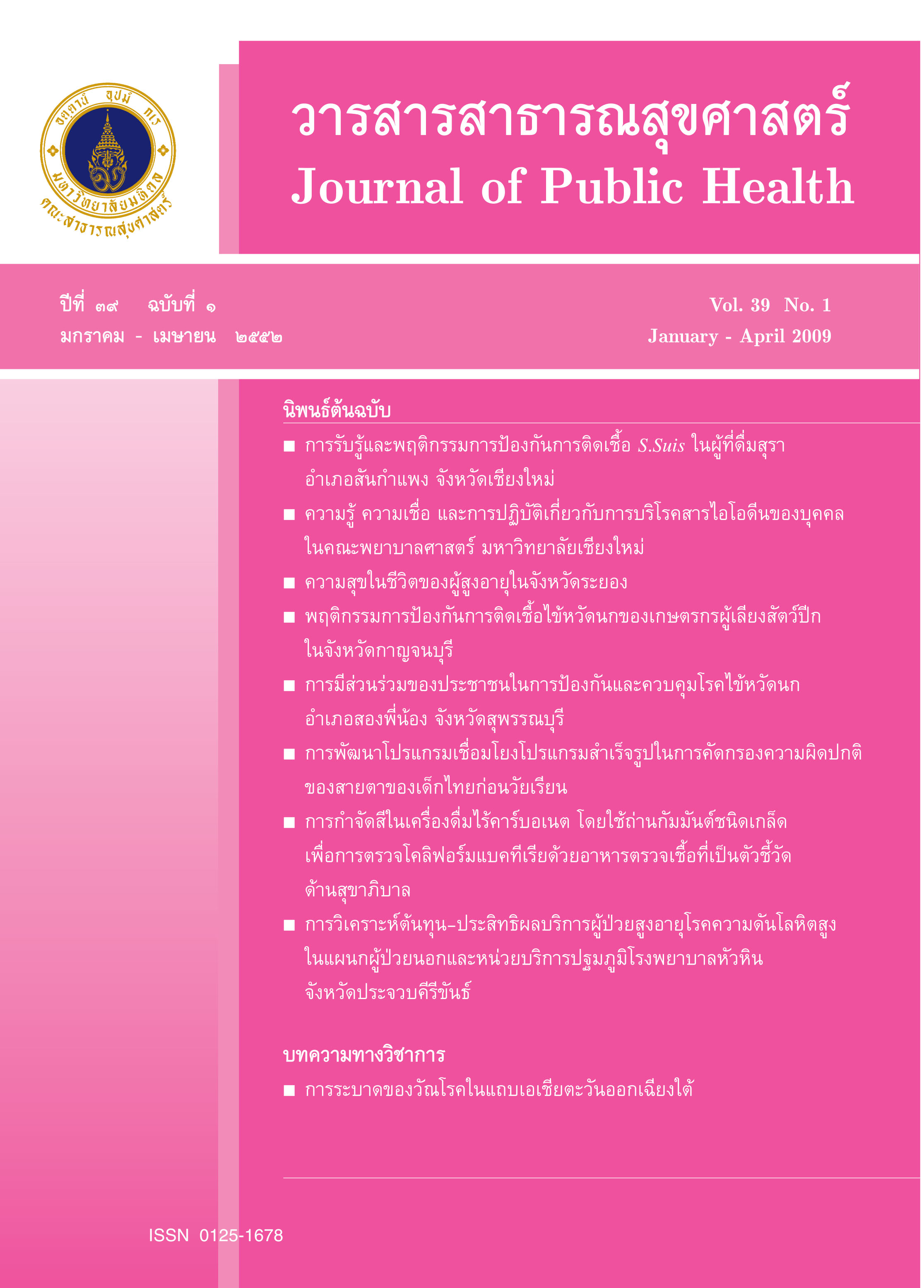ความรู้ ความเชื่อ และการปฏิบัติเกี่ยวกับการบริโภคสารไอโอดีนของบุคคลในคณะพยาบาลศาสตร์ มหาวิทยาลัยเชียงใหม่
Keywords:
knowledge, belief, practice, needs, iodine consuming, urban community, ความรู้, ความเชื่อ, การปฏิบัติ, ความต้องการ, การบริโภคสารไอโอดีน, ชุมชนเมืองAbstract
ABSTRACT
Iodine consumption is unlikely promoted in urban communities. This survey research aimed to explore knowledge, belief, practice, and needs about iodine deficiency disorders (IDD) prevention among students, faculty members, supporting personnel, and shop-owners in the faculty of nursing, Chiang Mai University prior to the launch of a campaign program. This study was conducted in the population available at the time of data collection. The number of subjects who volunteered to participate in was 218. Data were collected using the tests in June, 2008. Percentage, means, and Sperman’s test were employed analyzing the obtained data. The results indicated that, the scores of knowledge and belief were at the moderate level based on the 4 levels of very low, low, moderate, and high. Misunderstandings included the following: iodine makes food salty, IDD preventable by vaccine and mineral water, salty seasonings approved by the food and drug administration contain adequate iodine content, and the belief that respondents, their families, and people in urban communities are at low risk to IDD. The scores of consuming iodized salt, iodized fish sauce, and seafood were at the moderate, the low, and the very low levels, respectively. Knowledge was significantly associated with belief in the positive direction (p < 0.01). Belief was significantly associated with consuming behavior of iodized salt (p < 0.05), iodized fish sauce (p < 0.01), and seafood (p < 0.05). Approximately 15% of the subjects reported more selfcooking than buying; 69% consumed iodized salt, 28% selected fish sauce indicating iodine content on the label; 21% consumed seafood 2-3 times a week; 3% obtained salt-testing. The most wanted campaign activity to participate in was salt-testing. It is suggested that the campaigns promoting iodized salt and iodized fish sauce consumption are needed and through correcting misunderstandings and cultivating the belief in susceptibility to IDD.
Key words: knowledge, belief, practice, needs, iodine consuming, urban community
Issue
Section
License
Creative Commons License CC-BY-ND

